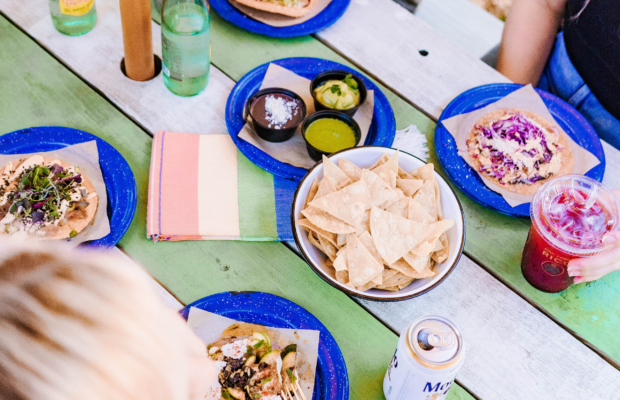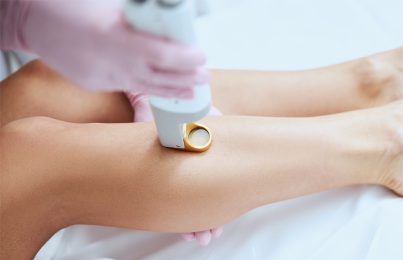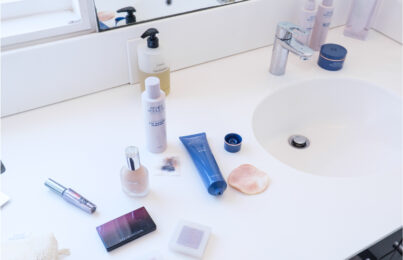Updated 01/25/25. Over my 35+ year career as an esthetician, thousands of clients have sought me out to help get their skin under control. I start every new client relationship (and appointment) with a consultation. In this consultation, I ask questions to understand all that I can about a client’s lifestyle and habits—both of which have an impact on their skin. Part of this conversation always centers on diet.
- Dairy May Cause Acne—Especially Cysts on the Chin and Jawline
- Strawberries Can Result in Skin Rashes Around the Chin and Mouth
- Highly Acidic Food Can Cause Irritation on the Skin It Touches—Especially if You Use Exfoliating Acids, Retinol, or Retinoids
- Citrus Fruits Combined With Direct Sunlight Can Cause a Reaction, Resulting in Skin Discoloration
- Sugar May Exacerbate Acne Conditions
- Foods That Are High in Sodium Can Cause A.M. Under-Eye Puffiness
- Eating a Gluten-Free Diet Won’t Improve Acne
- Certain Foods Can Trigger Rosacea Flare-Ups
- Oral Probiotics Can Probably Help the Skin in Some Small Way
- It Is in Your Skin’s Best Interest to Eat a Healthy Diet Rich in Antioxidants
- Drinking Water Doesn’t Hydrate Your Skin Like You Think it Does
- Drinking Alcohol Does Affect Your Skin But Not in a Good Way
- If You Have Acne, You Might Want to Limit Your Coffee Intake
- You Can Eat a Clean, Healthy Diet and Still Have Skin Problems
- You Can Eat a Diet Filled With Junk Food and Still Have “Good” Skin
- Eating a Clean, Healthy Diet Won’t Necessarily Make Your Skin “Glow”
- When it Comes to Food and Skin, There are Exceptions to All Rules
People tend to put a lot of emphasis on food when they’re trying to find the source of their skin concerns, but it’s important to have realistic expectations. Diet can exacerbate certain skin conditions, but it’s rarely the cause. Everyone expects food to be a game-changer and while I wish it were that simple, I just don’t believe it is. Diet is just one part of the complicated equation that makes up your skin.
With that in mind, I thought I’d share some of the ways I’ve personally seen food and diet affect clients’ skin over the years.
Dairy May Cause Acne—Especially Cysts on the Chin and Jawline
I learned this one very early on in my career. I had a client who had cystic acne, and through her, I realized hormonal acne could be directly affected by the amount of dairy one consumes. She noticed that her acne seemed to get worse with the more dairy she ate. She would literally eat a single scoop of ice cream, and the next day a new cyst would appear.
Based on this, I began suggesting that other clients with cystic acne cut out dairy. Once they did, many of them noticed their skin began to clear up. Of course, every person’s tolerance for dairy is different. Some people can’t eat any dairy without getting breakouts, whereas others can tolerate a little dairy before it starts to cause problems. This explains why cutting out dairy worked so well for some clients and made no improvement for others. When it comes down to it, cutting out dairy is worth a try if you have breakouts (especially around your chin and jawline). One 2016 study published in the Journal of the American Academy of Dermatology did show a positive correlation between low-fat and skim milk and acne, but no correlation between whole fat milk and acne. Read more about the link between dairy and cystic acne.
Note: I have spent a lot of time in France, and the French certainly don’t deny themselves dairy (what with all those wonderful cheeses!). When talking to French teens, I asked them if they ever get breakouts, and based on what they told me, there isn’t a high rate of acne in French adolescents. My hypothesis for why acne may not be as prevalent in France is that their dairy is generally less processed and their cows are given fewer hormones.
Strawberries Can Result in Skin Rashes Around the Chin and Mouth
This isn’t common, but I have certainly heard of this happening throughout the years. What happens is someone will get a sudden skin rash (appearing as red sores) around the chin and mouth. After getting allergy tested, they determine it’s caused by consuming strawberries. In fact, fruits can have allergenic proteins present in them, causing reactions in individuals. Other fruits with allergenic proteins can include raspberries, cherries, and kiwi.
Highly Acidic Food Can Cause Irritation on the Skin It Touches—Especially if You Use Exfoliating Acids, Retinol, or Retinoids
This is something I learned from my own personal experience. I’m a big fan of condiments. When I eat a burger, people joke and say, “Renée, do you want some burger with that ketchup?” So, when I take a bite, the ketchup oozes out onto the area around my mouth. This causes a problem for me by essentially creating an acid burn on my skin that leaves it red and irritated for a day or two. This only happens when my skin’s barrier is compromised, such as when I’ve been using retinol more often than normal, undergoing vitamin A peels, or using a lot of exfoliating acids. (Read all about how you can experience sensitivity with a damaged moisture barrier). That’s why I try to be careful about eating acidic foods when my skin is acting sensitive.
Citrus Fruits Combined With Direct Sunlight Can Cause a Reaction, Resulting in Skin Discoloration
Phytophotodermatitis is a condition in which the chemicals in citrus fruits, such as limes, lemons, and even celery, cause a chemical reaction on the skin when exposed to sunlight. Interestingly enough, it’s also called “lime disease,” which is not to be confused with Lyme disease. Citrus fruits contain compounds called limonene and linalool that can oxidize in the air and sunlight, and the oxidized versions of these compounds can be harmful to the skin. The result can be blistering and burns, but in mild cases, it can simply be skin discoloration in the form of brown pigment. The spots will eventually fade on their own, but they can linger for months at a time. (I have personal experience with phytophotodermatitis).
Sugar May Exacerbate Acne Conditions
This one isn’t black and white, but it’s still worth mentioning. A few of my clients saw a marked improvement in their acne when they cut out sugar (although, more often than not, I hear that it doesn’t change a thing). The medical community’s stance is also mixed, although the effects of sugar on acne have been studied since at least the 1920s. The thought here is that foods with a high glycemic index—think white bread, pasta, starchy foods, and sweets—are rapidly absorbed by our bodies. This leads to higher serum glucose levels and elevated levels of insulin. Insulin and IGF-1 have been shown to increase oil production and elevate androgens, which are a group of hormones that are thought to play a role in acne development.
If you struggle with breakouts, it’s certainly worth a shot to see if your skin responds favorably to this dietary change. Generally, I would recommend cutting out sugar for at least two full weeks before determining whether there is a correlation.
Foods That Are High in Sodium Can Cause A.M. Under-Eye Puffiness
This is one I know ALL too well. It happens like clockwork. If I eat salty foods, such as BBQ, Chinese, or Thai (all of my favorites), I wake up with swollen eyes in the morning. It looks like I’ve been crying all night. My face gets puffy, too, but it’s far more noticeable in my under-eye area. (I am obsessed with the TheraFace De-puffing Wand!)The is simply because sodium encourages water retention. Luckily, there are a few things I can do to alleviate the puffiness. Read my expert tips for reducing puffiness under the eyes.
Eating a Gluten-Free Diet Won’t Improve Acne
There’s been a lot of discussion about this one, but I haven’t seen any clinical evidence to suggest that gluten causes breakouts. Research also doesn’t support the theory that a gluten-free diet can clear up existing acne. In my personal experience, I have had many clients cut it out only to report back that it didn’t do anything for their skin. It’s simply not a theory that I stand behind.
Of course, this doesn’t mean gluten doesn’t affect the body. I know people who have been tested and discover they have gluten sensitivity. When they cut it out, they feel so much better. But is it a cure for acne? No. I don’t believe that to be the case.
Gluten and Eczema
People with celiac disease (an intolerance to gluten) are more likely to have skin conditions like dermatitis herpetiformis or eczema. In fact, research has shown that skin conditions like these are three times more common in people with celiac disease. In studies, relatives of celiac disease patients were also two times more likely than control subjects to have eczema, which means there may be a genetic link between the two conditions. In a study published in the Journal of Dermatological Treatment, 169 people with eczema were surveyed. More than half of those who cut gluten from their diets reported seeing an improvement in their eczema symptoms. I don’t have a lot of experience with eczema since most people with this condition seek out a dermatologist instead of an esthetician, so I just go by research. Eczema is a really tough condition to manage, so it’s worth cutting out gluten if it could potentially improve it. If you have eczema, consider cutting out gluten for at least three months to see if it improves.
Certain Foods Can Trigger Rosacea Flare-Ups
While the gut-skin connection still requires a lot of research, some of it has shown that people with rosacea are more likely to suffer from some kind of gastrointestinal disease. This includes celiac disease, Crohn’s disease, ulcerative colitis, and irritable bowel syndrome, to name a few. This suggests that there is a connection between rosacea and an imbalance in the gut.
There’s still a lot of work to be done before this research can be applied to the treatment of rosacea, but we do know that certain foods can trigger rosacea flare-ups. I’ve personally seen this with my clients who have rosacea—the more active someone’s rosacea is, the more likely it seems to be triggered by food. Foods that have been shown to trigger rosacea flare-ups include red wine (which has a high histamine content so it can dilate blood vessels), spicy foods, cinnamon, citrus, tomatoes, and chocolate. The last four foods might not seem like they have a lot in common, but they all contain a compound called cinnamaldehyde that can be a naturally occurring allergen in plants. It’s what’s thought to trigger rosacea flare-ups by causing a warming sensation.
If you have rosacea, there’s no guarantee that eating these foods will cause a flare-up (or that cutting them out will help avoid one). It’s also important to note that certain people can tolerate different amounts of these foods. With that being said, being aware of possible triggers can help you manage your rosacea, and it’s worth keeping track of what you eat to figure out if certain foods are causing a reaction. Again, everyone is different, and it takes time and patience to learn what works for you. (One more thing—since rosacea is thought to be connected to an imbalance in the gut, you can try eating fiber-rich foods, which act as prebiotics, as well as probiotic foods to promote a healthy gut).
Oral Probiotics Can Probably Help the Skin in Some Small Way
There is a lot of buzz, and subsequently, extensive research going into understanding the gut microbiome. This refers to bacteria, fungi, and other microbes found within your gastrointestinal tract that help with digestion, immune function, and other bodily processes. While I don’t believe a probiotic supplement can completely clear up a skin condition, whether that’s acne, rosacea, or eczema, I do think that having an imbalance within your digestive tract could potentially exacerbate these types of inflammatory skin conditions. Therefore, addressing an imbalance in your gut could possibly have a positive impact on your skin.
I personally choose to take a probiotic supplement each morning. While I haven’t noticed a change in my skin or body, I take it anyway because I think it’s benefiting me in some way. If you want to explore this topic further, I suggest reading Dr. Whitney Bowe’s book on the microbiome. It’s a good read.
Note: When it comes to probiotic supplements, it’s important to know that most contain only a few strains of bacteria. There are thousands of bacterial strains within our digestive tract, and researchers postulate whether taking just a few strains could potentially cause an imbalance rather than remedy it. There’s still a lot that’s unknown and research will likely reveal more as time goes on. Talk with your doctor to determine whether a probiotic supplement could be beneficial for you.
It Is in Your Skin’s Best Interest to Eat a Healthy Diet Rich in Antioxidants
The free radical theory of aging goes like this: free radicals, which are unstable molecules, damage the skin and cause aging by attaching to proteins and other essential molecules, rendering them unable to function and causing premature cell death. Antioxidants prevent free radicals from attaching to molecules in healthy cells and causing damage. That’s why consuming foods that are rich in antioxidants is one of the best ways to stay healthy and maintain youthful-looking skin in the long run. Read up on the 10 best antioxidant foods to eat for your skin.
Drinking Water Doesn’t Hydrate Your Skin Like You Think it Does
Okay, so it’s not technically a food, but it’s definitely worth mentioning. People put so much emphasis on drinking water for better skin. They claim it can plump skin and reduce breakouts. Sure, staying hydrated is important for your overall health, but the truth is that drinking water is the least efficient way to hydrate your skin. The water you drink doesn’t make its way from your intestines all the way out to the epidermis (the outermost layer of the skin). You’re much better off applying topical skincare products to hydrate your skin. (Read up on three things that will make a big difference in the hydration of your skin).
Drinking Alcohol Does Affect Your Skin But Not in a Good Way
We’ve all heard that drinking a glass of wine a day can provide health benefits. Whether or not this is true, I can say with certainty that it’s not benefiting your skin. In fact, it’s doing the opposite. Alcohol can accelerate aging and lead to blemishes, redness, puffiness, and dehydration (which can damage the skin’s moisture barrier). Read more about how alcohol affects the skin.
If You Have Acne, You Might Want to Limit Your Coffee Intake
I know, I know—this isn’t something you want to hear. I normally don’t suggest completely cutting out coffee, but since we’re talking about how food and drinks affect the skin, I thought coffee (and caffeine in general) was worth mentioning. While caffeine doesn’t cause breakouts, it could make them worse by increasing cortisol levels (a stress hormone) in our bodies. This is especially true if you drink coffee when you’re already feeling stressed. You see, caffeine can actually double your body’s stress response.
Increased levels of cortisol can trigger sebaceous glands to produce more oil, creating the perfect environment for breakouts to appear. What’s more is that coffee can interfere with sleep quality, which won’t do your stress levels (or your skin) any favors. If you’re adding sugar and milk to your coffee, that could also be affecting breakout activity, since as I already mentioned, dairy and sugar both have the potential to trigger breakouts. If you have acne, I do think cutting out caffeine for a while (or at least cutting down) could be valid. If you see a positive impact, experiment a little to find out what the ideal caffeine intake is for your body.
Of course, none of these are hard-and-fast rules. As with everything related to food and skin, the relationship between coffee and breakouts is complicated. For example, one study found that drinking coffee could actually improve the appearance of the skin. In the end, it really comes down to how much coffee you drink, what time of day you drink it, and what you add to it. Like any information that I’m sharing, it’s also possible that none of these will have any effect on your skin.
Fun fact: I never drink coffee. One sip was enough to know I didn’t like it. It’s way too bitter for my tastebuds!
You Can Eat a Clean, Healthy Diet and Still Have Skin Problems
“I don’t know why I still struggle with breakouts when I eat such a clean diet.” This is something I hear almost every day. The truth is that acne is a disease for which there’s no known cure. After 30 years of being an esthetician, I’ve been able to identify 11 common causes of blemishes, but it’s almost never possible to say exactly which combination of factors is the cause. Trust me, when it comes to acne-prone skin types, nature has a twisted sense of humor. You can do everything right and still break out. The true underlying cause of blemishes, while still mysterious, likely involves genetics and can sometimes boil down to a simple case of bad luck. If there was a one-size-fits-all cure, we would ALL know about it. For now, we’ll have to settle for understanding the science behind breakouts.
You Can Eat a Diet Filled With Junk Food and Still Have “Good” Skin
On the flip side, I’ve certainly had clients who eat poorly, yet their skin remains beautiful. French fries, burgers, and other greasy foods, while not the healthiest, don’t seem to cause skin problems. We all have that one friend who can eat whatever they want, splash water on their face, and yet maintain beautiful skin. It’s not fair, but it’s the reality of the subject.
Eating a Clean, Healthy Diet Won’t Necessarily Make Your Skin “Glow”
Even though it’s thrown around a lot these days, the word “glow” is really vague. Eating a healthy diet is obviously important, and if you eat well and see a glow, that’s great. However, I have a very particular definition of “glowing skin” based on four traits, and I can assure you that none of them are attained through diet.
When it Comes to Food and Skin, There are Exceptions to All Rules
Let me be perfectly clear—the things I’ve shared in this post are my beliefs and observations based on 30 years of caring for skin. The connection between food and skin is far from black and white, and it’s important to remember that we’re all unique. Every person’s skin will respond differently based on what it’s exposed to. If you want to explore the food-skin connection, you might consider keeping a food diary to keep track of everything you eat. You could very well discover some patterns that help you learn what does and doesn’t work for your skin.
Next, read all about the skin microbiome—the bacteria that live on your skin.
Celebrity Esthetician & Skincare Expert
As an esthetician trained in cosmetic chemistry, Renée Rouleau has spent 30 years researching skin, educating her audience, and building an award-winning line of products. Her hands-on experience as an esthetician and trusted skin care expert has created a real-world solution — products that are formulated for nine different types of skin so your face will get exactly what it needs to look and feel its best. Trusted by celebrities, editors, bloggers, and skincare obsessives around the globe, her vast real-world knowledge and constant research are why Marie Claire calls her “the most passionate skin practitioner we know.”




Comments:
Hi Renée Rouleau, Thank you for this insightful article!
As someone who has struggled with skin issues, I found the detailed breakdown of how different foods can impact our skin extremely helpful. It’s fascinating to see how dietary choices, such as dairy intake or high-sodium foods, can have specific effects like cystic acne or under-eye puffiness.
Your point about the uniqueness of each individual’s skin response really resonated with me. It’s a great reminder that while diet is a factor, it’s not the sole cause of skin problems, and what works for one person may not work for another.
I appreciate your balanced approach and the practical advice for managing skin health through diet. Looking forward to trying some of these tips and observing how my skin reacts!
Posted By: Jyothi |
I found this article interesting. In general I eat very healthy. I have skin type 3, so I’ve always struggled with some extra oil and breakouts once in a while.
In the past 6 yrs I found out that I am sensitive to gluten (not celiac). And depending on the type of food (type of gluten I eat), sometimes my skin can pay the price. I have realized that when I eat gluten, it stays in the organism for a while, so the pimples I get after having gluten take a lot more to heal and usually get infected (while regular breakouts and pimples take a few days to heal, gluten caused pimples get bigger and tend to heal in at least 2 weeks).
I don’t know if this happens to anyone else. But I’ve been testing foods for a long time now and I am aware of how my skin reacts. I think we should take the time to know our own skin, because a certain thing not always works for everybody.
Posted By: Alexandra Anderson |
Thank you for taking the time to share your experience! That is so true. Everyone’s skin is different and it is very important to listen to your skin.😊
Posted By: Ella Stevenson |